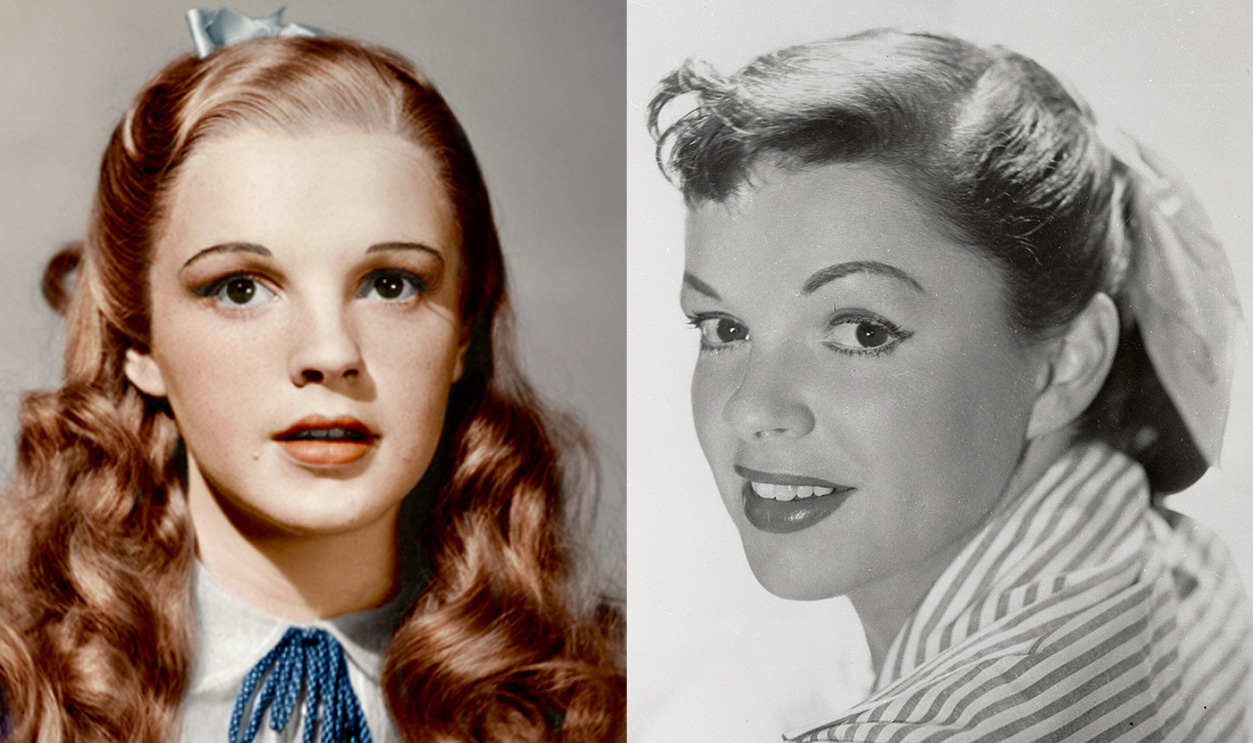For millions, The Wizard of Oz remains a timeless masterpiece — a cinematic rainbow of magic, innocence, and hope. But for its star, Judy Garland, the movie that made her an icon was a painful prison she could never escape. At just 16, Garland’s portrayal of Dorothy Gale captured the world’s heart, yet behind the Technicolor smiles and songs was a darker truth so raw, so harrowing, that Garland herself avoided ever watching the film again.
Born Frances Ethel Gumm, Judy was groomed for stardom before she could even spell her name. By the time Hollywood cast her in MGM’s glittering Oz spectacle, her life was already under the thumb of a merciless studio system. To audiences, she was the wide-eyed farm girl chasing dreams. In reality, she was a teenager trapped in a nightmare of hunger, exhaustion, and chemical control. MGM executives mocked her appearance, calling her too “plump” to be a star. Their solution? A punishing diet of chicken broth, coffee, and cigarettes — and a regimen of pills to keep her awake through 16-hour filming days, then more pills to force her to sleep.
What looked like whimsy on-screen was, behind the scenes, exploitation. Garland endured relentless criticism about her looks, the crushing pressure to remain “forever young,” and the humiliation of being treated less as a person than a product. Even her co-stars, older and emboldened in a male-dominated industry, sometimes ridiculed and harassed her. She was Dorothy to the world — but to herself, Judy was fading into someone else’s fantasy.
The irony of her career is devastating: the very role that cemented her place in history also stole her 𝘤𝘩𝘪𝘭𝘥hood and haunted her for life. Each time “Over the Rainbow” played, Garland wasn’t filled with pride but with sorrow, forced to relive the trauma bound to her breakout role. In later years, she admitted she could never sit through the film. For Judy, Oz wasn’t a magical land; it was the cage that trapped her youth, her self-image, and her spirit.
Her refusal to rewatch The Wizard of Oz was more than avoidance — it was survival. To revisit the film meant reopening wounds carved by the cruelty of an industry that profited off her suffering. Fans saw joy; Judy saw pain. And so she turned away, not from her artistry, but from the ghosts it carried.
Today, Judy Garland’s story forces us to reckon with the darker truths behind Hollywood’s golden age. She remains a symbol of resilience — a star who gave the world magic while paying the price with her own innocence. To understand why she never looked back at Oz is to see beyond the glitter and recognize the fragile humanity behind the legend.
✨ The question lingers: can we ever watch The Wizard of Oz the same way again, knowing the heartbreaking reality behind Judy Garland’s refusal?

